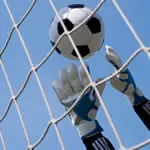
The goalkeeper: the most important player on the soccer field at all times, and most of the time it is the position that is not properly warmed up during pre-match activities. Why? Because neither the coaches nor the player know how to do it properly. It is that simple.
How many times do you see youth soccer pregame warmups that consist of two lines that dribble in and shoot at the goalkeeper? Who is this warming up? The goalkeeper? Well, if you think it is helping the goalkeeper, you are gravely mistaken.
The internal makeup of a goalkeeper is very unique. Not only does a quality goalkeeper need a strong technical side, but more importantly they need to have a very strong mind. Goalkeepers are either the hero or the goat--and nothing else. It takes a very unique individual to be able to handle this.
"Practice does not make perfect, PERFECT practice makes perfect."
So, a proper warmup is critical for his or her success in the match. Goalkeepers need to prepare their technical side, which will increase their confidence going into the match. Go back to the scenario where players dribble in and shoot on goal over and over again. What if most of the shots don't even hit the target? Or, what if most of the shots go in the goal? Both of these questions can be answered the same...the goalkeeper is destined for disaster!
If the goalkeeper does not get quality service during warmup, he or she is not properly prepared, which leads to potential mistakes--and mistakes lead to conceding goals. If all the shots go in during this activity? What do you think this does to the mentality of the goalkeeper that is only minutes away from the opening whistle? Confidence and perfection are key attributes for a goalkeeper and this type of activity doesn't help their mentality.
To properly warm up for a match, the pre-game preparation actually begins days before. First we must eat properly leading up to a match. The night before, it is always wise to use mental imagery to visualize the match before it is actually played. Imagine yourself playing the game and performing perfectly. Everything that you do is correct and confident...this mental approach stimulates our muscle memory to perform with perfection, just like the way we do in training.
Once we get to the field, we need to begin slowly with a nice jog and stretch. As we begin to get a stretch we can begin to toss the ball around with a coach or other goalkeeper. This begins to get our upper body ready to move. Simple basic catching of the ball with perfect technique (with diamond and fingertips on top of ball....NO "W" catch!) is the easiest place to start. By adding a little footwork we can begin to further get our legs and upper body working together.
As we progress, we need to prepare our body to hit the ground. Starting out with some simple, collapsed diving for low- and mid-level balls should do this. Service for this type of activity should be from out of a partner or coach's hands before ever progressing to someone striking a ball. Again, footwork can then be added into this type of collapsed diving as the goalkeeper begins to break a sweat. It is also wise to do these exercises at different angles in the goal to get the goalkeeper "feeling" his goalmouth.
Catching of high balls is essential as well. Service that is tossed up to catch can be done prior to balls crossed from the flanks by a field player or coach. Somewhere during the warmup, the goalkeeper also needs to kick a couple balls from the ground (goal kicks) and also out of their hands (punts/drop kicks) too.
By now the goalkeeper should have a nice sweat on them and be feeling quite good and confident. Now, and only now, can a goalkeeper begin to face some shots. Now, the important thing is to have a couple forwards begin to shoot on target...again, ON TARGET. They begin by not trying to score. We want the goalkeeper to begin seeing "live" shots from players running onto the ball. These players should not be hitting still balls; they should be striking moving balls. Players try to hit the goalkeeper for two reasons: to continue to give the goalkeeper confidence, and to work on the forwards' accuracy and warming up of their leg to hit the target.
After this is done for a couple reps, the players can begin to make the goalkeeper work to make saves while still hitting the ball on target. Players should now begin to play some give-and-go's or beat a player before getting off a shot. Being only minutes away from the match, the goalkeeper needs to begin to see more "live" and "realistic" situations. Once the goalkeeper feels completely warm and is confident, then and only then are they ready for the game.
In short, the goalkeeper needs to warm up every aspect of goalkeeping during his/her warmup: throwing, basic catching, footwork, kicking, collapsed diving, crosses, shots, etc. If you potentially might see it in a match, you need to have done it in your warmup. But, the key is simply this...gain confidence during your warmup. Gradually prepare your body and mind for the match by taking your time and doing this perfectly.
 See more soccer training tips or find a soccer league near you.
See more soccer training tips or find a soccer league near you.
Todd Hoffard is the director of ONE on ONE Soccer's Goalkeeper Schools.
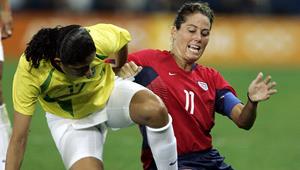
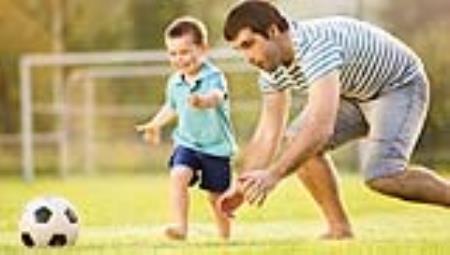
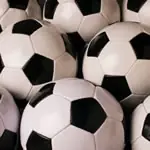
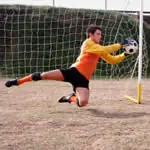
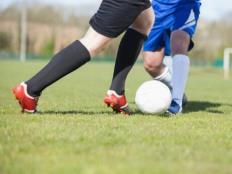
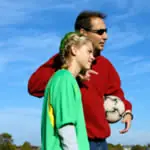
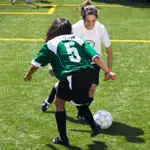
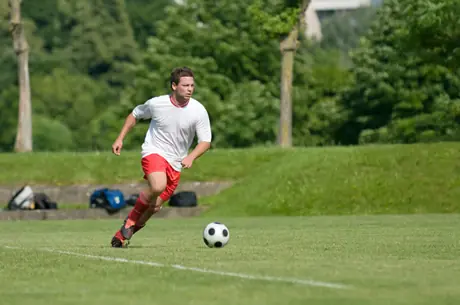
Discuss This Article